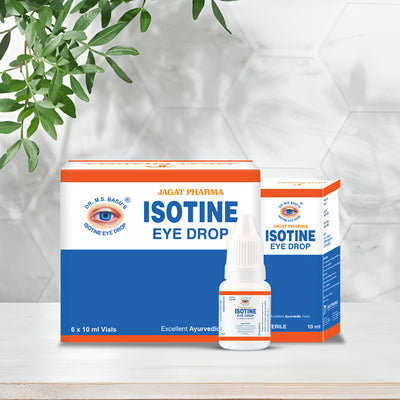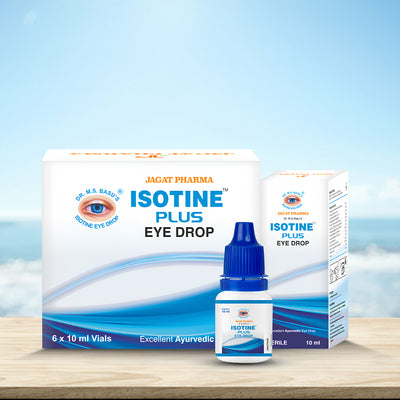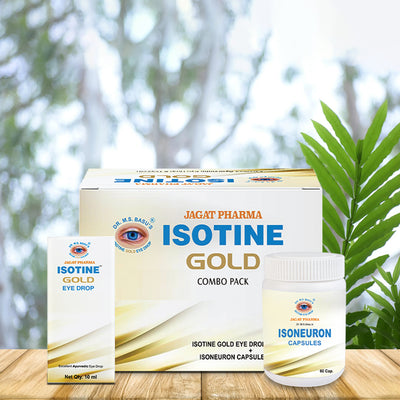
6/9 & 6/12 Vision: What It Means & How to Cure It!
Eyesight is crucial to our overall health, and any deviation from the norm can cause concern. One common term you might encounter during an eye examination is "6/9 eyesight." But what does it mean? What is 6/9 vision? How does it affect your daily life, and most importantly, what can you do to improve it? Let’s explore the significance of 6/9 eyesight and provide actionable steps to help you see better.
What is 6/9 Vision?
The term 6/9 refers to a specific measurement of visual acuity. Visual acuity is a measure of how you can see from a distance. When you hear "6/6 vision," it means that at 6 meters (about 20 feet), you can see what a person with normal vision should be able to see at that distance. This is considered a perfect vision.
On the other hand, 6/9 vision means that at 6 meters, you can only see what a person with normal vision could see from 9 meters away. In simpler terms, your vision is slightly below average. You may find it challenging to read small print, see distant objects clearly, or even recognize faces from a distance.
While 6/9 vision is not considered severe, it can impact your daily activities, especially in situations that require sharp distance vision, such as driving or playing sports.
What is 6/6 Vision and 6/9 Vision?
6/6 vision and 6/9 vision are terms used to describe a person’s visual acuity, or how clearly they can see. These measurements are based on the distance at which a person can see clearly compared to someone with normal vision.
6/6 Vision
- Eye sight 6/6 means you can see at 6 meters what a person with normal vision can see at 6 meters.
- It’s considered normal or "perfect" vision.
6/9 Vision
- 6/9 vision means that at 6 meters, you can see what a person with normal vision can see at 9 meters.
- This suggests slightly blurred vision or mild refractive error.
In short, 6/6 is ideal vision, while 6/9 indicates minor vision impairment, which might be improved with glasses or contact lenses.
What is 6/12 Vision?
6/12 vision means that you can see at 6 meters what someone with normal vision can see at 12 meters. This indicates a mild vision impairment or refractive error. People with 6/12 vision may need corrective lenses (glasses or contact lenses) to improve their sight. While it’s not a severe condition, it means your eyesight isn’t as sharp as it could be, and you might struggle with tasks like reading distant signs without correction.
Causes of 6/9 Eyesight
Several factors can contribute to having 6/9 vision:
Refractive Errors: The most common cause of 6/9 vision is a refractive error, such as myopia (nearsightedness), hyperopia (farsightedness), or astigmatism. These occur when the eye's shape stops light from focusing accurately on the retina, leading to blurry vision.
Age-Related Changes: As we age, the flexibility of our lenses decreases, making it harder to focus on close or distant objects. This natural aging process, presbyopia, can contribute to a 6/9 vision.
Eye Strain: Continued exposure of digital devices, reading in poor lighting, or not taking breaks can strain your eyes, leading to temporary or permanent visual acuity changes.
Underlying Health Conditions: Conditions like diabetes, high blood pressure, or thyroid disorders can affect eyesight. Managing these conditions is crucial to maintaining good vision.
Nutritional Deficiencies: Lack of important nutrients like Vitamin A, C, E, & Omega-3 fatty acids can lead to a decline in vision.
How to Improve 6/9 Eyesight?
The good news is that there are several ways to improve or even correct 6/9 vision. Here's how:
Prescription Glasses or Contact Lenses: The simplest and most common solution for correcting 6/9 vision is to wear eye glasses or contact lenses. An eye care expert can determine the appropriate prescription to help you see clearly at all distances.
Laser Eye Surgery: For those who are seeking a more everlasting solution, laser eye surgery, such as LASIK, can correct refractive errors by reshaping the cornea. This procedure has a high success rate and can significantly improve your vision.
Eye Exercises: Although not a cure-all, specific eye exercises can nourish the eye muscles and improve focus. Exercises like the 20-20-20 rule—where you look at something 20 feet away for 20 seconds every 20 minutes—can help reduce eye strain and improve your vision.
Proper Nutrition: A diet good in antioxidants and vitamins can improve your eyesight. Foods like carrots, spinach, fish, and nuts provide essential nutrients that support eye health. Consider incorporating more leafy greens, eggs, and citrus fruits into your diet to protect your vision.
Regular Eye Exams: Regular check-ups with an optometrist or ophthalmologist are important for maintaining good vision. Finding problems early can stop them from getting worse and help you get the right treatment quickly.
Protect Your Eyes: Simple measures like wearing sunglasses to save your eyes from UV rays, using blue light filters on digital devices, and ensuring proper lighting while reading can make a big difference in preserving your eyesight.
Manage Underlying Health Conditions: If your 6/9 vision is due to an underlying health condition like diabetes or high blood pressure, managing that condition is key. Regular monitoring and following your doctor's advice can help prevent further deterioration of your vision.
Ayurvedic Remedies: In addition to conventional treatments, Ayurvedic remedies have been used for centuries to support eye health. Herbal eye drops, like those containing Triphala or Santalum album, can help reduce symptoms like dryness and strain, contributing to overall visual improvement.
Lifestyle Adjustments: Reducing screen time, taking regular breaks, and ensuring a comfortable work environment with appropriate lighting can help prevent eye strain, a common contributor to 6/9 vision.
Conclusion
Having 6/9 vision might mean your eyesight isn't perfect, but it's manageable. Understanding the causes and taking proactive steps can help you improve your visual acuity and maintain your eye health. Whether through corrective lenses, surgery, or simple lifestyle changes, many ways exist to enhance your vision and lead a life free from visual limitations.
Remember, your eyes are your window to the world, and caring for them should be a priority. Regular eye exams, a balanced diet, and protecting your eyes from strain are simple yet effective ways to ensure that your vision remains clear and sharp for years to come. So, if you find yourself squinting or struggling to see things from a distance, don't ignore it—seek professional advice and take action to restore your vision to its best possible state.



